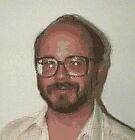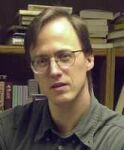The Evolution Deniers.
It has often and confidently been asserted, that man's origin can never be known: but ignorance more frequently begets confidence than does knowledge: it is those who know little, and not those who know much, who so positively assert that this or that problem will never be solved by science." —from the Introduction to The Descent of Man, Charles Darwin
|
|---|
Science denial.
Every advance in scientific understanding experiences some resistance. Of course one expects a new idea in science to be skeptically received by scientists until it has been thoroughly tested and found to be valid. That's a necessary part of the scientific process. Scientific opponents are finally won over by experimental confirmation. But in most every case there are non-scientists who refuse to be so easily convinced, and spend great effort to discredit and deny the new science. Examples are abundant in history:
- The theory of gravitation was opposed by 17th century flat-earthers and also by hollow-earthers. Such alternative views are still held by some people today.
- The laws of thermodnamics are not accepted by those who believe that it's possible to make perpetual motion machines, and even machines that put out more work than required to run them.
- Many individuals flatly reject the theory of relativity, and some try valiantly to construct alternative theories. To my knowledge none of these people have formed an organized opposition.
- Likewise there are individuals who reject quantum mechanics. They are even less unified—mostly lone individuals self-publishing books that attract very few readers.
- The cosmological picture of the evolution of the universe from the time of the "big bang" is strongly opposed by many, usually on religious grounds.
- The theory of evolution has had opposition since the time of Darwin, and in recent decades several religiously motivated groups are waging a war against what they see as the materialism of science. Creationists and proponents of intelligent design theory are foremost among these, but not the only ones.
- Outside of the natural sciences are those who deny historical events. Examples include holocaust deniers and those who contend that Shakespeare did not write the works attributed to him.
As one would expect, the motivations of these diverse deniers have a lot in common. Some arise from religious convictions. But looking deeper, we can identify these reasons:
- An emotional conviction of the "rightness" of a world-view that conflicts with the scientific view.
- An emotional feeling that some part of the scientific view is just not believable, or even conceivable, and therefore must be wrong. This is sometimes called "the argument from incredulity".
- A realization that science does not claim absolute truth, so deniers feel that they can reject any part of it they don't like. A stronger version of this argues that if scientific ideas are not absolutely true, then they must necessarily be completely false.
- A feeling that their own views are ignored or are unappreciated by scientists. They feel "put down" and don't like it.
- When religious motivations are present, they take the form: "Science refuses to acknowledge the supernatural." But a similar view is held by those of mystical inclination who simply want science to acknowledge the possibility of miraculous events or phenomena "beyond science". Both groups complain that science is "materialistic".
Scientists build their work upon measurable, testable and verifiable evidence and strive to keep personal and emotional feelings from influencing their judgment. Pseudoscientists start with "gut feelings" and emotional convictions, then select supporting evidence while inventing ways to deny any evidence that doesn't support their beliefs.
Denials are often selective. Perpetual motion machine inventors may deny the laws of thermodynamics, while accepting Newton's laws and even using Newton's laws (incorrectly) to support the claim that their machine should work in ways that would clearly violate the laws of thermodynamics. They fail to realize that you can't have it that way. If Newton's laws are correct, then the laws of thermodynamics are also. And if one is wrong, then both are wrong.
Rarely do deniers have much education in science beyond an introductory course, and the few who do have serious gaps in their understanding. Often they are not at all apologetic about that, for they feel that (a) one shouldn't have to know higher mathematics to understand science, and (b) science education is deliberately made difficult in order to keep out the "unworthy" and preserve the "scientific priesthood".
Evolution Deniers. Meet the Players.
In most "denial" movements, the effort is spearheaded by just one or a handful of people who can write and debate persuasively. Creationism's spokesmen (deniers of all stripes are nearly always male), never included any people with relevant scientific credentials. None had training and a record of research in the fields they were talking about. Few had academic degrees from accredited institutions, but more typically held degrees in unrelated fields from unaccredited schools or Bible colleges. This played well to their supporters, who held a deep mistrust for academic higher education and toward scientists in general.
The Intelligent Design (ID) movement does marginally better, so let's look at a few of the players in this drama. The information given here is, so far as I can determine, correct as of 2006.
|
|---|
Philip Johnson is a retired law professor at U. C. Berkley and considered the "unofficial spokesman for ID". Johnson converted to Christianity at age 38 after the breakup of his marriage. This "born again" experience led him to interest in the theory of evolution. After reading Richard Dawkin's The Blind Watchmaker and Michael Denton's Evolution: A Theory in Crisis he says "I guess almost immediately I thought, This is it. This is where it all comes down to, the understanding of creation." His first book, Darwin on Trial, was reviewed by Stephen Jay Gould in the July 1992 Scientific American, and described by Gould as "full of errors, badly argued, based on false criteria, and abysmally written." This put-down only spurred Johnson and his supporters to more zealous, and more organized, attacks on what they saw as the evil of evolution. Johnson's background in law makes him a formidable advocate. Lawyers know how to use emotional arguments and debaters' tricks to convince a jury of laypersons to accept their positions even when they have no evidence or insufficient evidence, and even against overwhelming evidence in favor of the other side. That's exactly what's needed to defend the "intelligent design" position. It's a game of trying to discredit, or at least cast doubt on, the other side's strong case.
|
|---|
Michael Behe, Ph.D., professor of Biochemistry at Lehigh University in Pennsylvania, is a star of the ID movement, partly because he has academic degrees in the field he talks about. His book Darwin's Black Box has gone through many printings. Behe introduced the idea of "irreducible complexity", that is, complexity that he claims could not have arisen by natural processes. Behe has not produced any original ID research supportive of this idea, and has no publications on this subject in peer-reviewed scientific journals. Lehigh University's website downplays Behe's ID involvement, and even has this disclaimer:
Department Position on Evolution and "Intelligent Design"
The faculty in the Department of Biological Sciences is committed to the highest standards of scientific integrity and academic function. This commitment carries with it unwavering support for academic freedom and the free exchange of ideas. It also demands the utmost respect for the scientific method, integrity in the conduct of research, and recognition that the validity of any scientific model comes only as a result of rational hypothesis testing, sound experimentation, and findings that can be replicated by others.
The department faculty, then, are unequivocal in their support of evolutionary theory, which has its roots in the seminal work of Charles Darwin and has been supported by findings accumulated over 140 years. The sole dissenter from this position, Prof. Michael Behe, is a well-known proponent of "intelligent design." While we respect Prof. Behe's right to express his views, they are his alone and are in no way endorsed by the department. It is our collective position that intelligent design has no basis in science, has not been tested experimentally, and should not be regarded as scientific.
|
|---|
Paul K. Chien, Ph.D. is described in the literature of the Discovery Institute's Center for the Renewal of Science and Culture (CRSC) as "conducting CRSC's paleontology research". He must be busy with other matters, for he has produced no research in paleontology to date. His degrees in Chemistry and Biology do not indicate any academic training in paleobiology. Chien has a position in the Biology department at the University of San Francisco.
|
|---|
Stephen C. Meyer is director and Senior Fellow of the Center for Science and Culture at the Discovery Institute, in Seattle, an organization devoted to opposing evolution, materialism and naturalism in the sciences, and their influences in all aspects of society. [The goals of the Discovery Instute are clearly laid out in its 1998 wedge document.] Meyer has a Ph.D. in History and Philosophy of Science from Cambridge University. He worked as a geophysicist with the Atlantic Richfield Company after earning his undergraduate degrees in Physics and Geology. Dr. Meyer has co-written or edited two books: Darwinism, Design, and Public Education and Science and Evidence of Design in the Universe.
|
|---|
William Dembski, Ph.D. is Associate Research Professor in the Baylor University Project on Religion and Science. Dembski uses information theory to argue that there are phenomena in nature that natural causes cannot explain. His admirers call him "the Isaac Newton of information theory"; his critics say he's "disconnected from reality". Dembski's use of information theory is criticized by experts in the field as "imprecise and informal", and his arguments carry negligible weight, in the opinion of scientists. They feel that Dembski doesn't properly take into consideration important system laws and constraints. Dembski has many published papers in peer-reviewed journals devoted to philosophy and information theory. We should note, however, that information theory is a field in flux, in which many problems that are discussed at length are far from being resolved.
- —Donald E. Simanek, February, 2006.
Top of page.
Intelligent Design Creationism: Fraudulent Science.
Intelligent Design: The Glass is Empty.
Order from Disorder. Creation in Everyday Life.
Random thoughts on randomness.
Is the real world really real?
Uses and Misuses of Logic.
The Scientific Method.
The Proof is Pudding. Proofs of God.
Theory or Process?
Is Intelligent Design an Interesting Philosophical Idea?
Why Not Angels?
What's bugging the creationists?
Summary and Conclusions.
Return to Abuses of science.
Return to Donald Simanek's home page.





